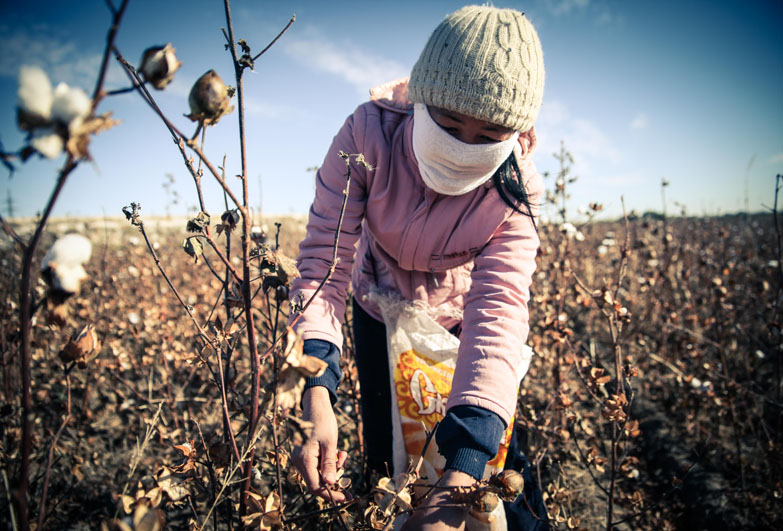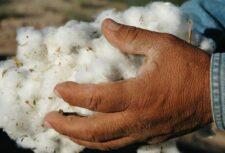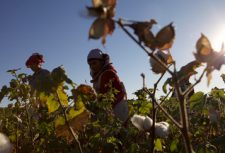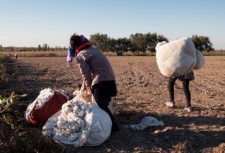Disclaimer: This article is more than 7 years old, and may not include the most up-to-date information or statistics. Please verify information with more recent sources as needed, and if you have any questions contact our Press Office.
Louise Eldridge, UK and Europe Programme Assistant, on Cotton Crimes happening right now in Uzbekistan during the cotton harvest

05 October 2016
‘If you are asked where and who you work with, answer that you work in a school or as a cleaner or as a security guard. Above all, tell them that you came here to pick cotton of your own free will.’
An inspector talks to teachers from the city of Gulistan, forced to pick cotton.
The 2016 cotton harvest is in full swing in Uzbekistan, and surprise surprise, from early September thousands of Uzbek citizens – including teachers, medical personnel and students – have been forcibly mobilised to the fields to pick cotton.
Officials claim that people go to harvest cotton voluntarily in order to earn extra money. However, according to local monitors reporting to the Uzbek-German Forum of Human Rights, they have to hide their profession from representatives of the International Labour Organization (ILO) who officially monitor the harvest, and provide statements of voluntarily participation – or face dismissal from work or university.
Students have to submit special letters of “voluntary” participation: “I promise to participate in the cotton harvest in 2016, on a regular basis. I guarantee to collect 80 kg of cotton daily […]. In the case of non-compliance […], I agree to leave the ranks of students.”
Those who cannot or do not want to pick cotton have to buy themselves free. Money extorted from students, doctors and teachers varies, with some employees being extorted to pay a fee of 150 US dollars. Staff at one medical centre in Tashkent reportedly paid 100 million Som ($15600) in total for their non-participation in the harvest.
A doctor forced to pick cotton spoke of the oppressive measures taken by the state: “On the one hand, we are forced to give up our main job, leave our families and children. On the other hand, we are assigned to fulfil an impracticable plan and forced to pay fines for not being able to do so. At the same time, authorities strictly prohibit to disclose ‘inner secrets’ of this unlawful process to the public, threatening us with all sorts of repressions.”
There are no excuses: even the sick and disabled are forced to the fields. Pregnant women and those with very young children are being threatened with the cut of state child benefit payments if they do not participate. A six-months pregnant 28-year-old woman suffered a miscarriage on the first day of the harvest, after being forced to pick cotton.
Thanks to international pressure from the Cotton Campaign (to which Anti-Slavery International belongs) as well as trade unions and businesses, Uzbekistan has made significant progress achieving the almost total eradication of child labour. However, children in the fields have now been replaced by masses of adult forced labour. Uzbekistan continues to fall foul of its commitments to the International Labour Organisation (ILO) to end forced labour and continues to perpetrate basic human rights abuses against its own people.
With the recent death of President Islam Karimov, the harsh autocrat who ruled with an iron fist for 27 years, some thought the system would change. But power has passed to Shavkat Mirziyaev who, during his tenure as Prime Minister (2003-2016), personally supervised the entire course of the cotton harvest every year. The prognosis looks bleak.
Anti-Slavery International, alongside partners from the Cotton Campaign, are working to keep up international pressure on Uzbek leaders to eradicate forced labour once and for all. Without that pressure the Cotton Crimes won’t stop.





